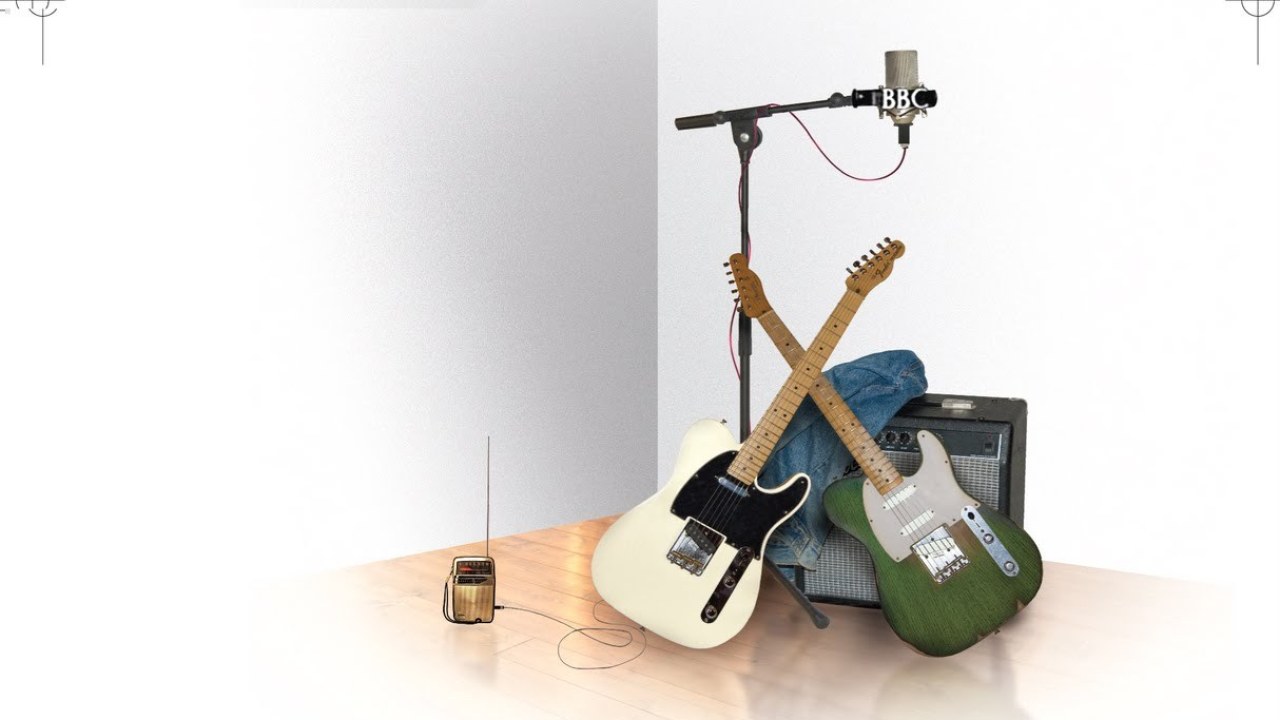You can trust Louder
Two old friends fell out in 1996 when Quo took legal action against the BBC after Radio 1 refused to playlist their singles. The main thrust of the band’s argument was that, as a public service broadcaster, the corporation had an implicit duty to give airtime to music that had a broad national appeal – i.e. songs selling enough to make the Top 40 chart.
It was an unsavoury little episode, neither side emerging with much dignity, and arguably the first notable spat in a relationship that had held strong for the previous 30 years. Quo and the Beeb were mass appeal soul mates, to the point where the former proudly hold the record for the most appearances by a band on Top Of The Pops (106, but factor in solo acts and Cliff Richard nudges them into second place).
The contents of this box set are further testament to the love affair; 105 tracks across seven discs (plus a DVD of 17 TOTP slots and other telly appearances ), going all the way back to the first flirtations when the band were still trading as The Spectres. In this incarnation, on 1967 sessions for Brian Matthew’s Saturday Club, they’re still pretty much an aspiring club band knocking out covers, most pleasingly a shoddy garage workout on The Everly Brothers’ Bird Dog. The same applies after a name change to Traffic Jam (a jaunty reading of The Bee Gees’ Spicks And Specks), the sound largely built around Roy Lynes’s Farfisa organ. Keyboards continued to dominate on the early recordings as Quo proper (Are You Growing Tired Of My Love?), and taking the music chronologically the first seeds of the riff-mungous guitar band who conquered the world begin to take root, curiously, on another Everlys cover, The Price Of Love.
As the 60s turn into the 70s, and Matthew hands over the DJ baton to Dave Lee Travis and John Peel, the boogie template becomes fully formed (Mean Girl, Down The Dustpipe), the cramped radio studio giving way to the purpose-built Paris Theatre and full-length live gigs. The 1973 show at the Paris is the most thrilling inclusion here, Francis Rossi and Rick Parfitt with a bunch of hit singles under their belts and a swagger that manifests itself in career-best performances of Don’t Waste My Time and Paper Plane. This is the guts and glory Quo of taut rhythms and inspired guitar breaks, the home-grown natural heirs to Creedence Clearwater Revival’s kings-of-the-barre-chord crown.
Interestingly, there are old-school purists who’ll have you believe that the Quo magic began to dim with the monster success of a song they borrowed from CCR’s John Fogerty. Even bassist Alan Lancaster has spoken of his dislike of Rockin’ All Over The World, arguing that it signalled the band losing sight of their pure blues promise and succumbing to the vacuous spoils of showbiz, and he may have a point…
Later discs have a tendency to drift towards end-of-the-pier jolly-ups, with covers of Dion’s The Wanderer and Steeleye Span’s All Around My Hat (even with Maddy Prior), but by the same token it could equally be taken as a return to the showband beginnings of The Spectres and Traffic Jam.
None of us should waste too much time analysing this – Francis and Rick certainly haven’t – because in the cut-throat music business a bills-paying career that extends even a single day over a decade is not to be sniffed at. Rossi and Parfitt are enjoying their continued status as national treasures, and the BBC is rightly complicit in such behaviour.
Sign up below to get the latest from Classic Rock, plus exclusive special offers, direct to your inbox!
This is the most ambitious collection of radio archives Universal has so far attempted, three discs more than the long-delayed compendium they have planned for the ultimate British pop royalty that is Elton John. Clearly, seven whole discs are designed to dot or cross every letter, tick myriad boxes and leave no stones unturned. Consequently, there will be duffers (nobody ever needs to hear the playground plod of Burning Bridges again), but who cares about the crappy ones? That’s what skip buttons were invented for.
Terry Staunton was a senior editor at NME for ten years before joined the founding editorial team of Uncut. Now freelance, specialising in music, film and television, his work has appeared in Classic Rock, The Times, Vox, Jack, Record Collector, Creem, The Village Voice, Hot Press, Sour Mash, Get Rhythm, Uncut DVD, When Saturday Comes, DVD World, Radio Times and on the website Music365.

